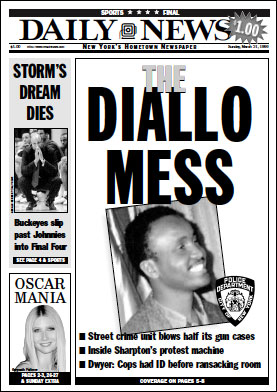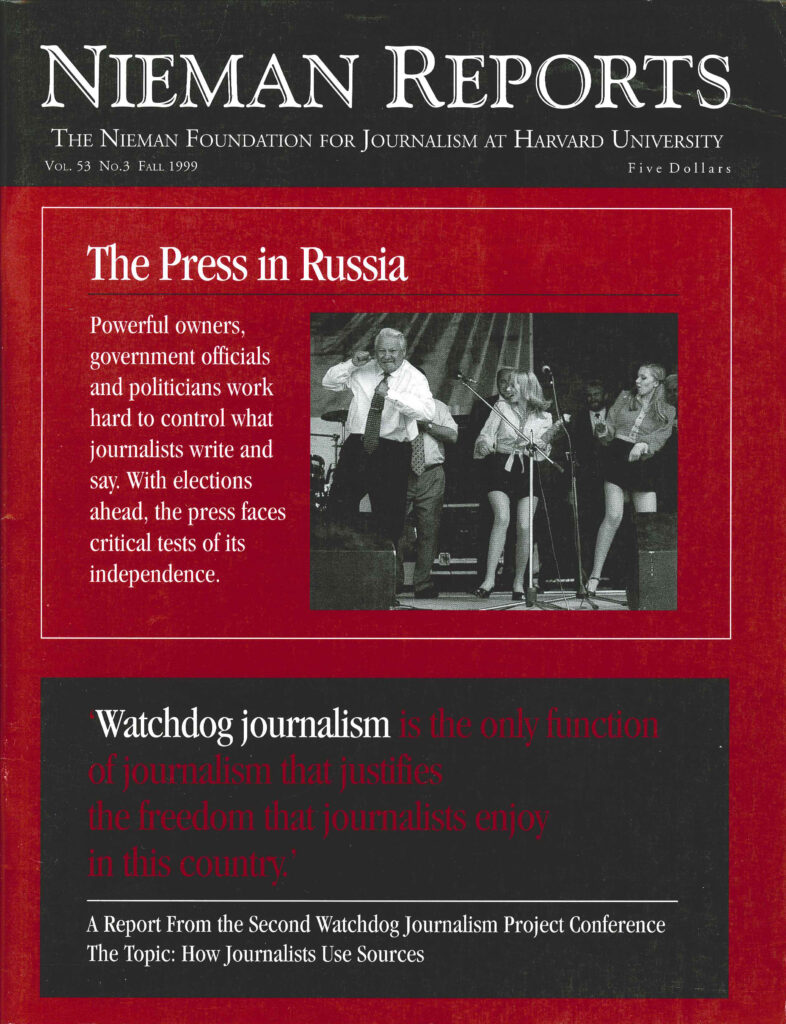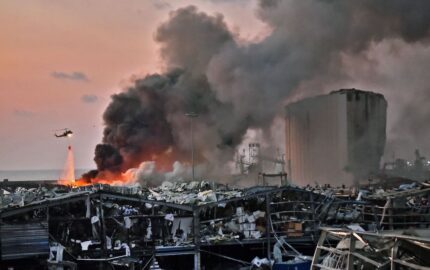What happens when reporters are shut out by sources whom they believe are necessary to report a story? Several journalists at the Watchdog conference argued that reporters often do their best work when the usual sources aren’t available.

Murrey Marder: “When you are shut out, you have to work harder and dig harder. I think that could well serve as the emblem for watchdog reporting.”
William Rashbaum: “My experience is that the best work I’ve done is when I’ve been completely shut out by the agency or institution that I’m covering…. Because when you are shut out, you just have to work harder and you have to dig harder, and that’s when you find, or in my experience that’s when I’ve found, things I wouldn’t have found otherwise or wouldn’t have come out otherwise.” ... “The New York City police department is, in effect, a closed institution. But it’s huge. There are 40,000 cops and any number of civilian employees who work there. So when the department shuts you out, and under Mayor Guiliani they have pretty much shut everybody out—almost everybody—you’ve got to dig. But that doesn’t mean that you’re not going to have people at the lower levels who are going to be pointing in the right direction, sharing inside information with you, sharing documents with you…. [To do that], first of all they have to trust you because they’ll lose their jobs or they may find themselves someplace where they don’t want to be.”
...
“On the Diallo shooting, we were trying to find out the outcome of some of the cases involving the street crime unit cops, the cops that had been involved in the shooting. Their sort of claim to fame, their purpose, was to get guns off the street. We tried to get the police department to tell us how those cases worked out and they wouldn’t. And we ended up finding out that 50 percent of the gun cases that they made were dismissed in court. Because those cases are sealed, it’s hard to determine what the reasons for the dismissals were. There were a lot of potential reasons. But we did find a number of published court decisions where the searches were bad or the stops were unconstitutional. And we found cases over and over again, in one case there was a supervisor who four times had cases dismissed because of his testimony and several cases with judges writing in decisions that his testimony was not credible. It’s very rare for a judge in New York to actually put that on paper; they may dismiss a case, but to actually write down on paper that a cop’s testimony is not credible, which is short of perjury, short of saying he is lying, but it’s pretty harsh. “If the police department had answered our question and said, ‘This is how many cases were dismissed and this is what happened with these decisions,’ we never would have gotten that far [in our reporting].”

Murrey Marder: “When you are shut out, you have to work harder and dig harder. I think that could well serve as the emblem for watchdog reporting.”
William Rashbaum: “My experience is that the best work I’ve done is when I’ve been completely shut out by the agency or institution that I’m covering…. Because when you are shut out, you just have to work harder and you have to dig harder, and that’s when you find, or in my experience that’s when I’ve found, things I wouldn’t have found otherwise or wouldn’t have come out otherwise.” ... “The New York City police department is, in effect, a closed institution. But it’s huge. There are 40,000 cops and any number of civilian employees who work there. So when the department shuts you out, and under Mayor Guiliani they have pretty much shut everybody out—almost everybody—you’ve got to dig. But that doesn’t mean that you’re not going to have people at the lower levels who are going to be pointing in the right direction, sharing inside information with you, sharing documents with you…. [To do that], first of all they have to trust you because they’ll lose their jobs or they may find themselves someplace where they don’t want to be.”
...
“On the Diallo shooting, we were trying to find out the outcome of some of the cases involving the street crime unit cops, the cops that had been involved in the shooting. Their sort of claim to fame, their purpose, was to get guns off the street. We tried to get the police department to tell us how those cases worked out and they wouldn’t. And we ended up finding out that 50 percent of the gun cases that they made were dismissed in court. Because those cases are sealed, it’s hard to determine what the reasons for the dismissals were. There were a lot of potential reasons. But we did find a number of published court decisions where the searches were bad or the stops were unconstitutional. And we found cases over and over again, in one case there was a supervisor who four times had cases dismissed because of his testimony and several cases with judges writing in decisions that his testimony was not credible. It’s very rare for a judge in New York to actually put that on paper; they may dismiss a case, but to actually write down on paper that a cop’s testimony is not credible, which is short of perjury, short of saying he is lying, but it’s pretty harsh. “If the police department had answered our question and said, ‘This is how many cases were dismissed and this is what happened with these decisions,’ we never would have gotten that far [in our reporting].”



